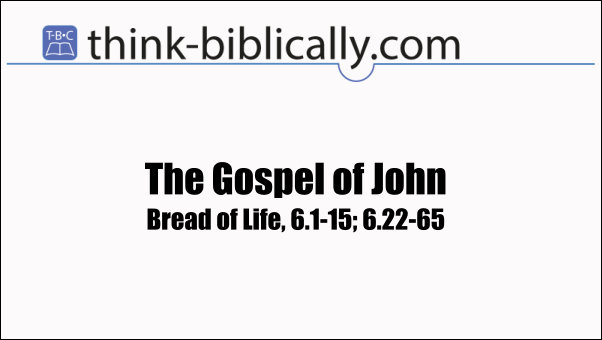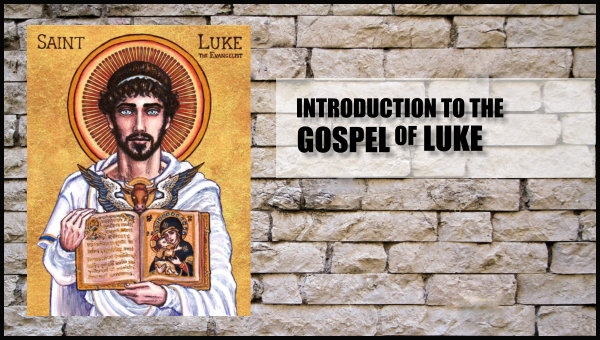By Tyson Thorne
 , 2019
, 2019
The feeding of the five thousand is one of the most famous passages of the Bible, and for good reason. Beside the miracle of the resurrection itself, it is the only miracle of the Messiah that is recorded in all four gospel accounts. Most are familiar with the story itself, but do we understand it's importance? Are we familiar with Jesus' explanation of its significance? The story is told in John 6.1-15, including the fact that after the meal Jesus slipped away so that the people would not try to make him king of Israel. His ambition was something else.
It had been a long day of teaching, and the people needed to eat. Andrew brough forth the only food available, five loaves and fish, and Jesus caused it multiply so that everyone ate their fill and then some. The miracle is known as the feeding of the five thousand, but that count was of the men only. With the women and children present, there were far more than 5000. Probably a great many more, but what did it mean?
When the crowd found him on the other side of the Sea of Galilee, they asked Jesus to explain his sudden departure. And he did. He told them what was in their hearts, and it wasn't a desire for the spiritual gain but for materialistic comfort food. To them the fish and bread that fed thousands wasn't a sign, it was an easy meal. To make it simple, Jesus explained that the only deed required of them is to believe in the Messiah. Knowing that Jesus was speaking about himself they asked for a sign, as if the feeding of the 5,000 wasn't enough.
Perhaps because bread was what Jesus brought up regarding the miracle meal, the people asked for a sign like those their ancestor had in the wilderness - manna from heaven (a reference to Exodus 16). Once again it appears they were thinking of their belly rather than their God. To bring them back on topic Jesus explains that he is the bread from heaven and the water of life if only they were to believe, which they did not. Jesus then explained his ultimate mission, to save all who seek him and all whom the Father has given him and to assure than not one would be lost to the pervasive evil of this world. On the day of the resurrection, he would claim each and every one and usher them into eternal life.
As anyone can expect, they didn't take this criticism well. "Don't we know his parents?" they questioned. "How then can he say he is bread from heaven?" Rather than try another tactic or illustration, Jesus doubles down and makes the claim three more times. In doing so he provides the gospel message twice more. Those who come to Jesus will be raised to life everlasting. He concludes by saying "the bread I give for the life of the world is my flesh," foreshadowing his sacrificial death.
Obtusely the people continue to argue with Jesus (not recommended). "How can we eat his flesh?" the asked, thinking of their stomachs again. Jesus gives them a glimps of another sacred practice that will begin after his death, communion: "Unless you eat the flesh of the Son of Man and drink his blood, you have no life in yourselves."
SIDE NOTE: This statement by Jesus leads some to believe that taking communion is necessary for salvation. We know from other passages of Scripture this is not the case. Jesus is stating that those who have received him will practice communion, not that communion is required to be born again.
Even some of Jesus' own followers began to complain, "This is a difficult teaching!" Some decided to go their separate ways at this point, but we are encouranged by the author who tells us that Jesus already knew who belonged to him — and it wasn't everyone who claimed to follow. John even tells us (verse 64) that Jesus already knew that Judas would be the one to betray him! Knowing this, examine how Jesus treats Judas throughout the rest of his ministry.
